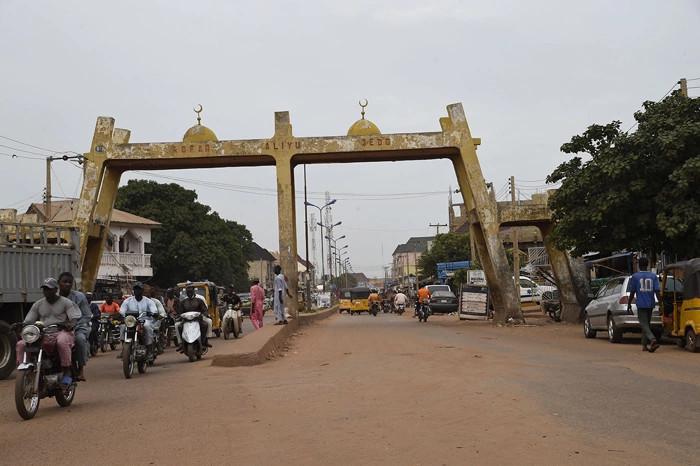
Christian man recounts death sentence sham trial judicial terrorism
A former Army general in Nigeria said his death sentence following riots more than 30 years ago was the result of Muslim military leaders controlling a sham tribunal.
Maj.-Gen. Zamani Lekwot, a Christian, spoke at the Nigerian Army Resource Centre in Abuja on Nov. 5 for the release of his book, Judicial Terrorism, saying he was sentenced to death even when courts had declared his conviction fraudulent. He and other Christian leaders subject to “judicial terrorism” were later freed thanks to divine providence, he said.
Lekwot said the roots of the 1992 conflict between Christians and Muslims in southern Kaduna state began on Feb. 6 of that year, when rioting erupted in a market in Zangon Kataf County, causing six deaths and property destruction. The government set up a commission of inquiry.
The commission’s report had yet to be released when an Islamic group in Zangon Kataf town petitioned then-Sultan of Sokoto Alhaji Ibrahim Dansuki to do something about the Muslims who had died in the market riot, with the aim of forestalling jihadist violence rooted in the belief that a Muslim who kills or dies in jihad goes to Heaven, Lekwot said.
Copies of the petition were sent to the Kaduna governor, the emir of Zaria, other emirs in northern states and security agencies, he said.
“However, suddenly on Friday, May 15, 1992, I was told the authors of the petition attacked Afabwang village, the closest atyap [traditional chiefdom of the Atyap people] village to them and caused mayhem,” Lekwot said. “The news spread like wildfire, and the whole community became emotionally charged, culminating in the clash which caused loss of lives and property on both sides.”
Instead of ordering an investigation to establish the facts, 61 people, including tribal chiefs, senior pastors and other prominent citizens were arrested and thrown into prison on the orders of Gen. Ibrahim Babangida, head of the military junta. The orders followed the surprise visit on May 26, 1992, of Babangida, whom Lekwot referred to by the name of the presidential palace site, Aso Rock Abuja, “when he wept and declared those responsible for the destruction guilty,” Lekwot said. “That was the narrative that culminated in the atyap’s persecution by Aso Rock. No Hausa/Fulani man, who started it all, was arrested.”
Lekwot said the military junta in power at the time attempted to place them on trial twice. The first trial brought four charges: unlawful assembly, rioting, armed rioting and disturbing the peace, he said.
“However, since the case was a charade without substance, the attorney general of the federation applied a nolle prosequi [abandonment of charges], and we were discharged but not acquitted,” Lekwot said. “Immediately thereafter, we were re-arrested and returned to the Kaduna prison on the orders of the tribunal chairman.”
In the second trial, 18 charges were added to the original four even though the nolle prosequi was still in place, “which was very bizarre,” he said. Lekwot’s attorneys sought justice for him and the other defendants at a Kaduna high court.
“Shamelessly, however, Aso Rock shocked everyone by confirming that the tribunal was on a mission to deliver us to the gallows come what may,” Lekwot said, adding that on Dec. 3, 1992, they were barred from appealing by Decree No. 55.
His attorneys withdrew from the case in protest, and the tribunal chairman refused the defendants’ request for another defense team, stating that only Aso Rock Abuja (the presidential administration) could grant it, he said.
“Consequently, he later condemned us to death by hanging, without fair hearing, based on the prosecution’s false charges against us, which our defense team had discredited,” Lekwot said. “What a travesty of justice in a country that is supposed to be the hope of the black race. When our lawyers finally got to the Supreme Court, the case was struck out because of Aso Rock’s refusal to release the judgment record. The same thing happened during the Oputa Panel sittings, when the judgment record was demanded to no avail.”
Following public outcry against the gross injustice, the sentences were commuted to five years imprisonment, Lekwot said. Human rights group The Constitutional Rights Project filed a case with the African Commission on Human Rights in Banjul, Gambia, which led to nullification of their convictions and imprisonments, he said.
“The trial was nullified in October 1994 due to the gross violation of the African charter, et al.,” Lekwot said. “We therefore remain ever grateful to them for their commendable empathy. In essence, there was no trial in the real sense of the word. What the venal tribunal did merely tarnished the fine reputation of our judiciary, which was clearly the one on trial throughout the trial and not us. What a grotesque thing to do which clearly portrayed Nigeria in bad light without compunction.”
Source » washingtontimes





